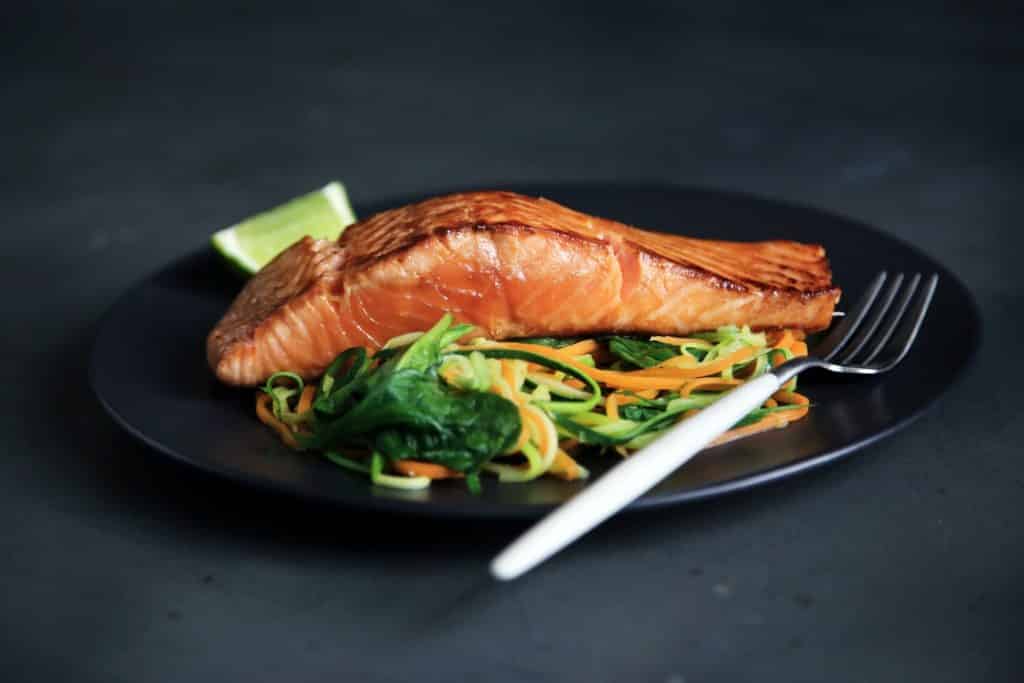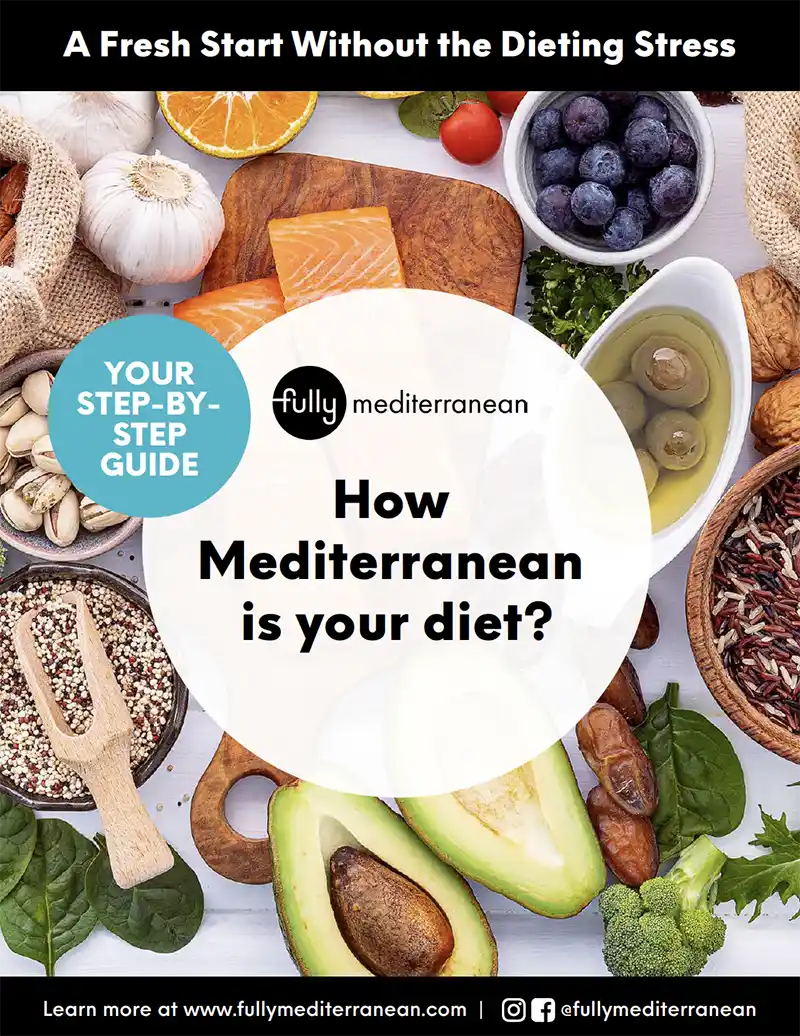Reflecting on food and recipes of the countries bordering the Mediterranean Sea, the Mediterranean Diet emphasizes vegetables, fruits, legumes, ancient grains, lean protein, and healthy fats. While you may feel overwhelmed hearing about all the food groups of the Mediterranean Diet, eating the Mediterranean way is really just about enjoying a wide variety of plant-based foods and enjoying delicious, flavorful foods. To get started, follow our top ten tips below.

1. Focus on Vegetables
Vegetables are a great source of vitamins, minerals, fiber, and antioxidants. Diets rich in vegetables are associated with a lower risk of cancer and heart disease. Aim for 2 ½ cups of vegetables per day.
2. Take Advantage of Seasonal Fruits
The plant compounds found in fruit are proven to boost immunity and reduce inflammation within the body. Eat a variety of fruits in a range of colors to get in a wide range of health-promoting antioxidants. Aim to eat 3 servings or about 1 ½ cups of fruit per day.
3. Go for Whole Grains
Whole grains are great sources of fiber, B vitamins, and minerals like iron, magnesium, and selenium. Compared to refined grains like white bread, white rice, and couscous, whole grains keep you fuller longer because of their added protein and fiber. Our favorites are farro, freekeh, quinoa, and barley.
4. Don’t Forget Your Legumes
Legumes are loaded with fiber, B vitamins, and minerals. They are the perfect plant-based protein source for your meatless meal. Research shows that replacing red meat with plant-based protein is associated with a lower risk of heart disease, diabetes, and certain cancers. These filling foods help prevent hunger throughout the day and can be added to any salad, mixed dish, or blended into a paste-like hummus!
5. Choose Nuts Daily
Nuts are packed with fiber, protein, and healthy fat. These delicious energy-boosting foods can be consumed alone as a snack, as a crunchy salad or yogurt topping, or paired with fruit as a spreadable nut butter.
6. Aim for at Least 2 Servings of Fish or Seafood Per Week
Fish and seafood are lean protein options packed with vitamins, minerals, and healthy omega-3 fatty acids. The healthy omega-3s found in fatty fish are anti-inflammatory components that help our bodies heal and fight inflammation. Aim to eat at least two 4-ounce servings of fish or other seafood per week.

7. Choose Healthy Fat Sources
Fats are an essential part of a healthy diet because they provide energy and support normal body functions. Choose plant-based oils that are liquid at room temperature, instead of animal sources of fats. Olive, canola, and avocado oils are the best options due to their anti-inflammatory omega-3 fatty acid content.
8. Enjoy Dairy Regularly
Consuming dairy is recommended on the Mediterranean diet to help meet calcium needs. Calcium improves blood pressure, cholesterol, brain function, and mood. Therefore, enjoying low-fat cheese and yogurt in moderation is part of an overall healthy diet.
9. Change the Way You Think About Meat
Changing the way you think about meat is a part of the Mediterranean lifestyle. To help begin these changes, fill half your plate with colorful and flavorful vegetables first, then fill one-fourth with your favorite whole grain and one-fourth of the plate with a lean protein source.
10. Stay Hydrated!
Water is essential for our bodies to function normally, and adequate hydration is an integral part of the Mediterranean lifestyle. Needs depend on factors including age, activity level, and climate. Water is the best choice for a beverage and can be enhanced by adding fresh or frozen fruits and fresh mint or basil to create a refreshing “spa water.”

0 Comments